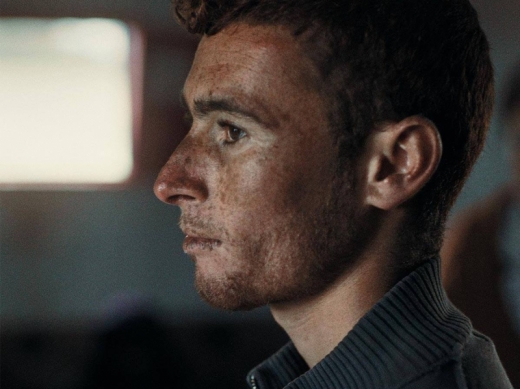 Malek
Malek
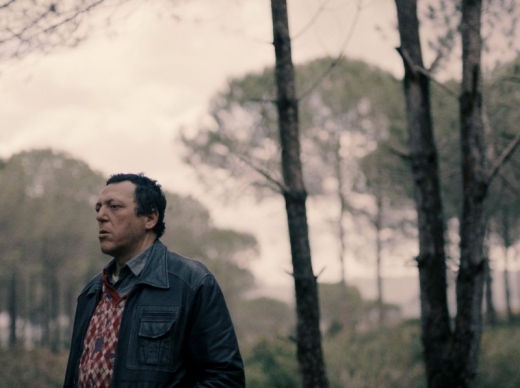 Mohamed
Mohamed
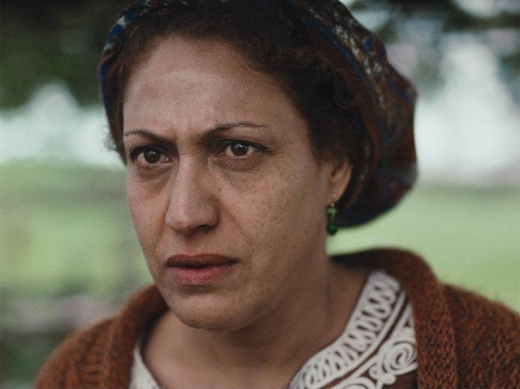 Salha
Salha
Known for previous films ‘Born in the Maelstrom' (2017) and 'Gods, Weeds and Revolutions' (2012), award-winning director, writer and producer Meryam Joobeur’s latest oeuvre ‘Brotherhood’ (2018) premiered at TIFF where it won Best Canadian Short Film in the Short Cuts Awards section. Set in Tunisia, the film tells the story of Mohamed, his son Malek and the latter’s obscure new Syrian wife.
In a recent interview, here is what Meryam had to say on 'Brotherhood':
Were the events in the film inspired by real events?
MERYAM: The journey of Brotherhood all started with a chance meeting with two red-haired Tunisian teenagers, Malek and Chaker, in the middle of nowhere, more specifically the rural rolling hills of northern Tunisia. The two brothers were leading a flock of sheep across a lush green hillside when myself and cinematographer Vincent Gonneville spotted them. It is an image that deeply marked both of us; the contrast of their unique faces filled with freckles against the green landscape, a rarity in this corner of the world. I asked to take their photograph, but they refused so we got back into our car and drove away. I then learned that a neighbouring town to the boys called Sejnan had experienced a surge of radicalization post the Tunisian revolution in 2011, which ousted the dictator Ben Ali. A larger than average percentage of men from Sejnan had gone to Syria. This knowledge was the basis for the story of Brotherhood. I knew I wanted to address this social issue through the intimate lens of one family and I also knew that I wanted the brothers to act in the film. So… A year later I went searching for them from village to village and landed at their doorstep with the script for Brotherhood. I convinced them and their younger brother Rayene to act in the film and listened to my instinct that there was something special about them. Six months later in March 2018 we shot the film. Every step of the way in making Brotherhood, life sent signs that this was an important moment in my filmmaking and my life and I understood the importance of trusting in my instinct.
Where did you film?
MERYAM: The entire film was shot in the north of Tunisia in a rural region called Louka. We shot in the house of a family member related to the brothers. It was an incredible location because surrounding the house were cliffs overlooking the ocean, a canyon, a pine forest and wheat fields.
How did you go casting? Was it a natural difficult process?
MERYAM: The casting process started with the brothers. The challenge was to find two professional Tunisian actors that could believably play their parents since red hair and freckles isn’t common in Tunisia. For the role of the father I looked at photographers of different Tunisian actors and was immediately drawn to actor Mohamed Grayaa. There was something in his eyes and about his face- a depth and weight- that captivated me instantly and I offered him the role based on his photograph. For the mother, the Tunsian producer of the film Sarra Ben Hassen introduced me to actress Salha Nasraoui. I met Salha for a coffee and moment she introduced herself I knew she was perfect for the role because of her natural strength and warmth. Luckily both Mohamed and Salha were physically convincing as the parents of Malek, Chaqer, and Rayene. The only official ‘auditions’ were held for the role of Reem, the mysterious Syrian wife of Malek. I auditioned about fifteen girls and Jasmine Yazid stood out for the natural melancholia in her eyes.
What is your hopes audiences will take away from the film?
I grew in the US in a post-9/11 world. I witnessed how the perspective in North America on the Muslim/Arab world shifted in a drastic and negative way. At times, I felt that the Western world saw us as sub human, that we don’t feel pain or trauma in the same way when in reality the Muslim world has suffered the most causalities because of religious radicalization. This shift also disturbed me because I am very attached to my Tunisian roots and the humanity I see in my grandparents, aunts, uncles, cousins, second cousins etc…does not fit the image projected of Muslims in the Western world. If audiences can take away one thing from Brotherhood, I would hope it is this: People across cultures have more commonalities than differences. A Tunisian mother will suffer as much as a Canadian/American mother if both their sons are radicalized. The bonds of family, the love/ complications, are universal.
How did you get your start in directing?
MERYAM: I had always been attracted to visual arts as a kid and painted/ drew during my teenage years. I loved stories and would beg my grandmothers to repeat the folk tales of their childhood. Fast forward to high school where I took a video class by chance to fill an elective. It was the first time I held a video camera and the first time I saw filmmaking as a tangible profession. I fell in love immediately with the richness of the medium and how it is an intersection of so many mediums and interests. Most of all I loved the possibility of breaking barriers between realities and cultures and I decide to dive in.
After this, will you direct feature films?
MERYAM: This is the hope! I am currently working on a few feature scripts. The difficulty is always finding the funding/resources for a first feature but I’m taking it easy and adapting to what life brings.
You recently screened at TIFF. How was that experience?
MERYAM: TIFF was an incredible experience. When I was preparing to shoot Brotherhood, I decided that I only wanted to set one goal for the distribution of the film, which was to screen the film in Tunisia to the brothers and the rest of the cast and crew. I set this goal because before I had felt too much pressure by achieving festival/ critical success and I wanted to keep the experience of Brotherhood pure. My dear friend and the Canadian producer of the film Maria Gracia Turgeon convinced me to apply to TIFF with a rough cut. When the film was selected, I was floored since it unexpected. What stuck me the most about TIFF were the audiences. As ‘big’ in scale as TIFF is, the audiences filled the cinema for all the short film programs. There was as much interest in watching shorts as features. This was something I hadn’t experienced before for short films. I loved the Q&As and realized then that Brotherhood had the potential to change peoples’ mind on the realities in the Muslim world
Interview by Vanessa McMahon


















 Malek
Malek
 Salha
Salha



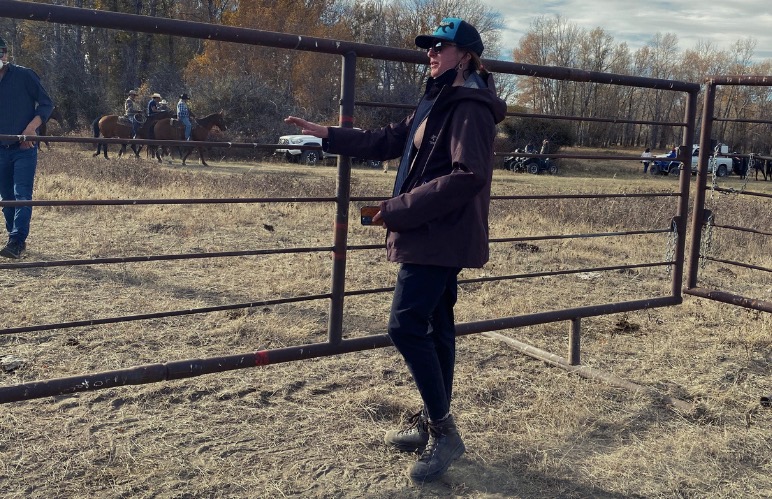
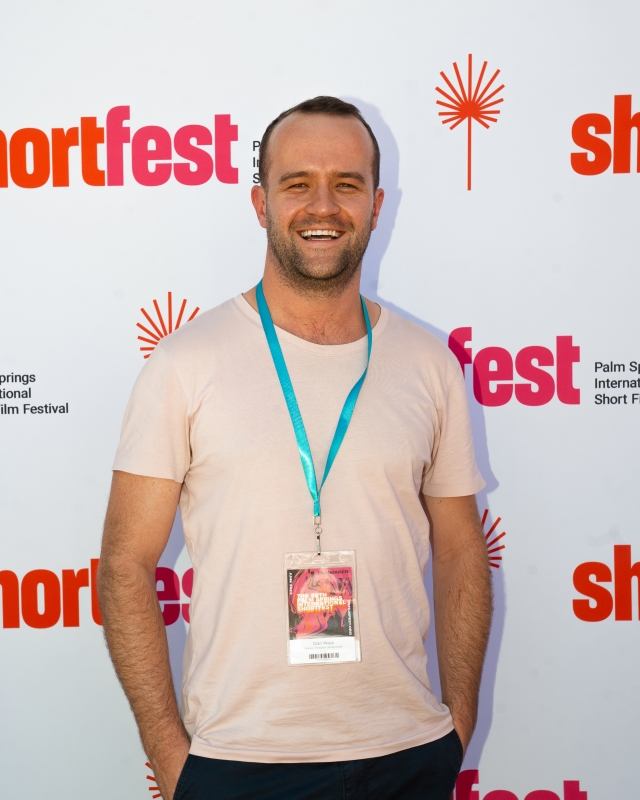
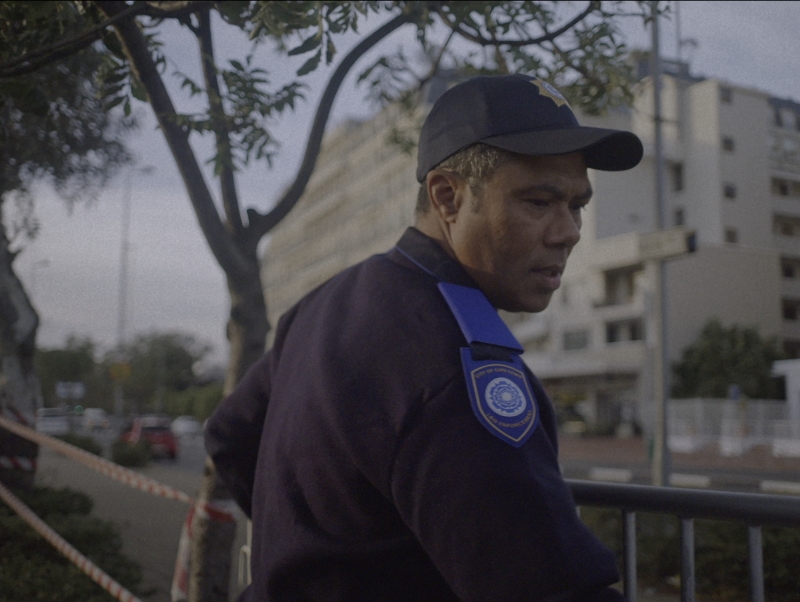
 McMahon Vanessa
McMahon Vanessa 


